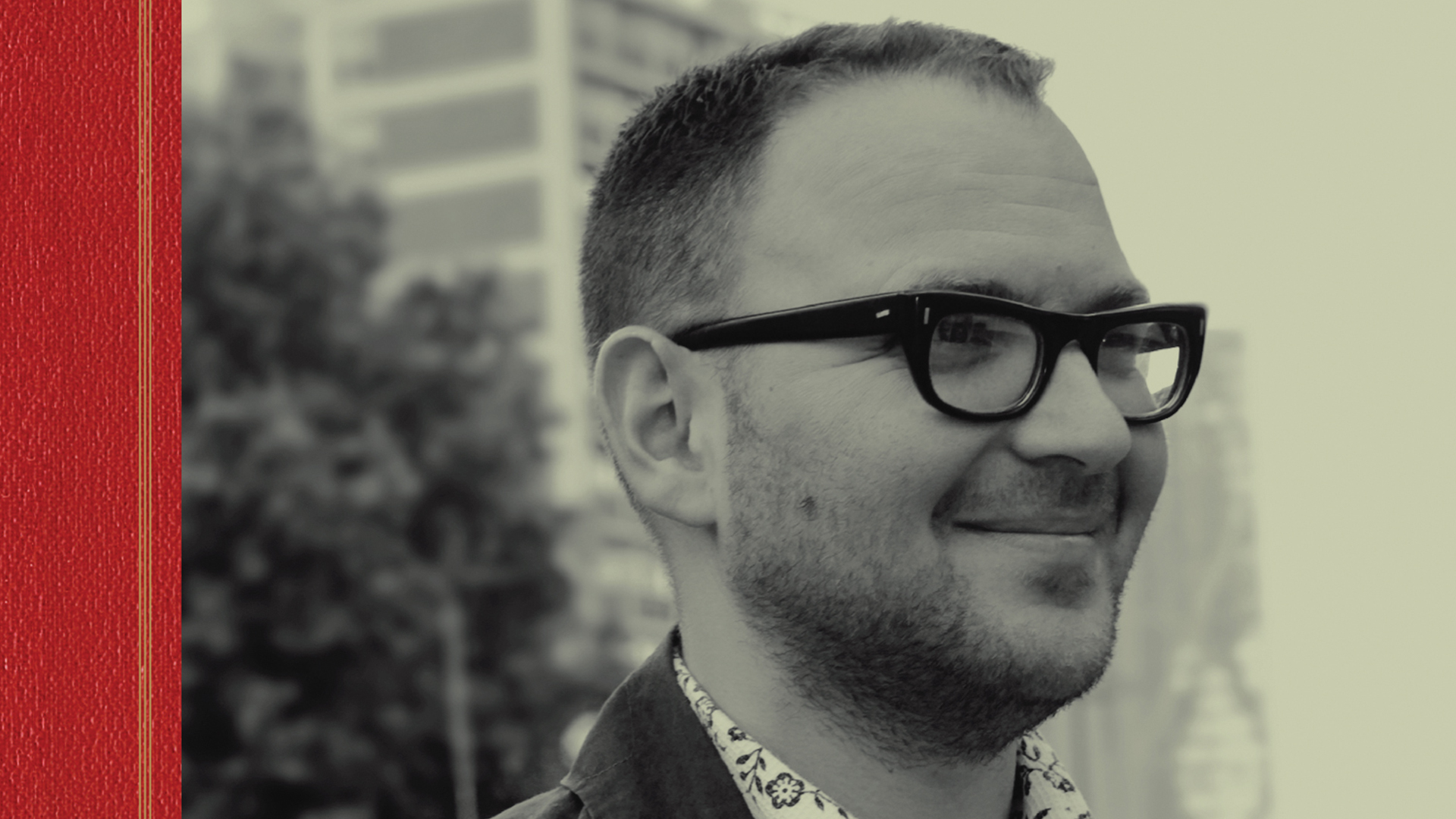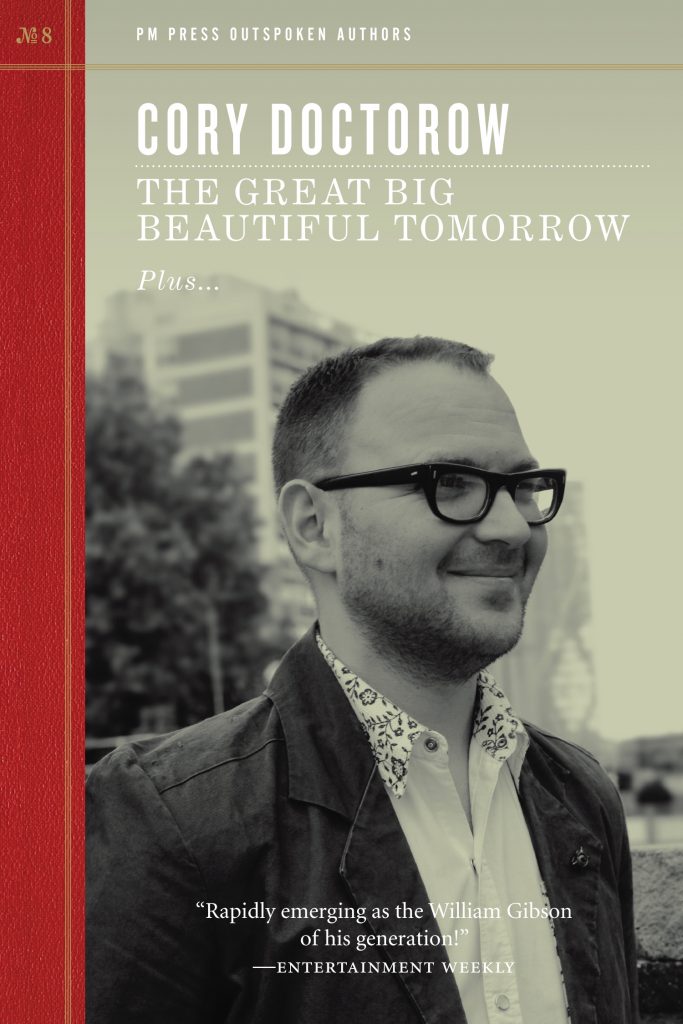by Benjamin Wald
SFRevu
The Great Big Beautiful Tomorrow presents an excellent introduction to Cory Doctorow; both his fiction, and his activism against restrictive copyright laws. The book contains a new novella by Doctorow that showcases both his fertile imagination and his central conviction about the future; that it will bring change, and more change, and then still more change. Also included is Doctorow’s speech to the 2010 worldcon, “Creativity vs. Copyright,” and a lively and fascinating interview. All in all, this book provides an excellent picture of Doctorow’s fiction and his activism, making it perfect for those already fans of Doctorow’s work and for those just discovering it.
The novella follows the adventures of a young bio-engineered immortal boy named Jimmy in a future America totally transformed by ceaseless technological change. Advanced technologies allow anyone with an agenda and the right technological know-how to change the world, but each change lasts only until someone else changes it yet again. The pace of change has fragmented America into small communities united by mutual outlook, often organized around bizarre technological assisted models of social life. The wireheads, for instance, all have antennae in their brains that constantly broadcast and receive each other’s emotions, making each person’s emotional state a gestalt of the entire community’s, while in the wiki country the buildings and landscape are subject to community edits.
Jimmy’s father has engineered him to be immortal. This has the side effect of retarding his ageing, so that at the start of the novel he is chronologically fourteen, but biologically more like ten. He lives with his father in the ruins of Detroit, the cities sole occupants. Detroit is one of the last cities, the rest having been torn up and recycled by the “Wumpuses,” self-assembling creators that disassemble the relics of the past. The story follows Jimmy’s coming of age and his travels. These travels reveal Doctorow’s incredible inventiveness; he throws off mind-bending ideas every few pages, developing each one in ways both fascinating and credible before moving to the next.
The novella showcases all of Doctorow’s strengths. We have fascinating ideas by the bucketful, but they never swamp the personal dimension of the story. Jimmy’s struggles to deal with his past, his isolation as the only immortal, and his complicated relationship with his childhood friend and sometimes lover Lacey are all skillfully handled, giving the story emotional depth that belies its flashy set pieces. Despite the extravagant setting, the story is still deeply relevant to our own time and place; it tells us both that things will change and keep on changing, but that the basic elements of human life, our relationships to our parents, ourselves, and each other, will still be with us.
The speech, “Copyright vs. Creativity,” is an excellent summary of and introduction to Doctorow’s passionate fight against restrictive copyright and internet monitoring laws. He makes his point with eloquence and force, impressing the seriousness of the issues on the reader, while avoiding the rhetorical excesses of some committed activists. It won’t be new to those who have read Doctorow’s views on the subject before, but its still well worth a read. Finally, the interview provides an interesting window into Doctorow’s views on writing, the role of the internet, and privacy, among other topics.
Overall, this book contains some excellent material. The novella is Doctorow at his best, and the other material gives a nice picture of Doctorow as a person and the causes that he so passionately defends.







